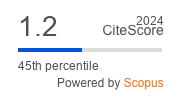Cytotoxic Effect of 6-Ethyl-Chenodeoxycholic Acid and Cabazitaxel on PC-3 Cells
https://doi.org/10.33380/2305-2066-2023-12-1-52-58
Аннотация
Introduction. Chemotherapy with Cabazitaxel (CBZ) is a typical first-line treatment option for naïive castration-resistant prostate cancer resistant to docetaxel. On the other hand, Cabazitaxel's therapeutic success is constrained by chemoresistance and side effects.
Aim. To assess whether 6 alpha-ethylchenodeoxycholic acid (6-ECDCA), a selective agonist for bile acid receptors will enhance the efficacy of CBZ in androgen-independent prostate cancer cells.
Materials and methods. The 3-(4,5-Dimethylthiazol-2-yl)-2,5-diphenyltetrazolium bromide (MTT) viability assay was used to assess the cytotoxicity of 6-ECDCA and CBZ medicines or their combinations against the human prostate cancer cell line (PC-3). The combination outcome suggested by Chou TC et al. was then evaluated using the combination index (CI) to find out the nature of synergism, antagonism, and additive effect of the drug’s combination. Furthermore, the Dose-Reduction Index (DRI) was determined to measure how many times the dose could be reduced for each drug in a synergistic combination.
Results and discussion. Analysis of the dose-effect curve showed that the treatment of PC-3 cells with CBZ alone or combined with 6-ECDCA for 48 h led to 50 % cytotoxicity of 20.5 nM and 4.7 nM, respectively. 6-ECDCA at 1.77 µM had an additive effect based on the CI value, which was 1.02, while at 21.02 µM, the CI was 0.54 which designates a strong synergistic effect. The combination of CBZ and 6-ECDCA at a submaximal lower dose by 6-folds of each one produced a 95 % cell death than treatment with either agent alone.
Conclusion. The Combination index plot showed CI ≤ l for all combinations used in this study, which indicates additive and synergistic interactions between CBZ and 6-ECDCA. The significant impact of 6-ECDCA in combination with CBZ for treating androgen-independent prostate cancer cells was confirmed by this study to be preferred to the treatment with a single drug.
Ключевые слова
Об авторах
M. H. ZalzalaИрак
Baghdad-Iraq
W. S. Al-khfajy
Ирак
Baghdad-Iraq
R. A. Khaleel
Ирак
Baghdad-Iraq
Список литературы
1. Erdogan S., Serttas R., Turkekul K., Dibirdik I. The synergistic anticancer effect of salinomycin combined with cabazitaxel in CD44+ prostate cancer cells by downregulating wnt, NF-κB and AKT signaling. Mol Biol Rep. 2022;49(6):4873–4884.
2. Ebner B., Chaloupka M., Berg E., Stief C. G., Kretschmer A., Herlemann A. Prostate cancer: When to treat, which treatment options by stage? MMW Fortschr Med. 2021;163(7):36–40.
3. Vrignaud P., Semiond D., Benning V., Beys E., Bouchard H., Gupta S. Preclinical profile of cabazitaxel. Drug Des Devel Ther. 2014;8:1851–1867.
4. Mukhtar E., Adhami V. M., Siddiqui I. A., Verma A. K., Mukhtar H. Fisetin Enhances Chemotherapeutic Effect of Cabazitaxel against Human Prostate Cancer Cells. Mol Cancer Ther. 2016;15(12):2863–2874.
5. Bansal D., Reimers M. A., Knoche E. M., Pachynski R. K. Immunotherapy and Immunotherapy Combinations in Metastatic Castration-Resistant Prostate Cancer. Cancers (Basel). 2021;13(2).
6. Zhang Y., Jiang R., Zheng X., Lei S., Huang F., Xie G., Kwee S., Yu H., Farrar C., Sun B., Zhao A., Jia W. Ursodeoxycholic acid accelerates bile acid enterohepatic circulation. Br J Pharmacol. 2019;176(16):2848–2863. DOI: 10.1111/bph.14705.
7. Duan W. J., Jia J. D. Research advances in primary biliary cholangitis. Zhonghua Gan Zang Bing Za Zhi. 2017;25(11):801–804.
8. Di Ciaula A., Wang D. Q., Molina-Molina E., Lunardi Baccetto R., Calamita G., Palmieri V. O., Portincasa P. Bile Acids and Cancer: Direct and Environmental-Dependent Effects. Ann Hepatol. 2017;16(Suppl. 1: s3–105.):s87–s105. DOI: 10.5604/01.3001.0010.5501.
9. Liu X., Wang Y. An overview of bile acid synthesis and its physiological and pathological functions. Yi Chuan. 2019;41(5):365–374.
10. Garcia M., Thirouard L., Sedès L., Monrose M., Holota H., Caira F., Volle D. H., Beaudoin C. Nuclear Receptor Metabolism of Bile Acids and Xenobiotics: A Coordinated Detoxification System with Impact on Health and Diseases. Int J Mol Sci. 2018;19(11):3630. DOI: 10.3390/ijms19113630.
11. Pellicciari R., Fiorucci S., Camaioni E., Clerici C., Costantino G., Maloney P. R., Morelli A., Parks D. J., Willson T. M. 6alpha-ethyl-chenodeoxycholic acid (6-ECDCA), a potent and selective FXR agonist endowed with anticholestatic activity. J Med Chem. 2002;45(17):3569–3572. DOI: 10.1021/jm025529g.
12. Cariello M., Peres C., Zerlotin R., Porru E., Sabbà C., Roda A., Moschetta A. Long-term Administration of Nuclear Bile Acid Receptor FXR Agonist Prevents Spontaneous Hepatocarcinogenesis in Abcb4. Sci Rep. 2017;7(1):11203. DOI: 10.1038/s41598-017-11549-7.
13. Di Ciaula A., Wang D. Q.-H., Molina-Molina E., Baccetto R. L., Calamita G., Palmieri V. O., Portincasa P. Bile Acids and Cancer: Direct and Environmental-Dependent Effects. Ann Hepatol. 2017;16(Suppl. 1: s3–105):s87–s105. DOI: 10.5604/01.3001.0010.5501.
14. Wang W., Zhan M., Li Q., Chen W., Chu H., Huang Q., Hou Z., Man M., Wang J. FXR agonists enhance the sensitivity of biliary tract cancer cells to cisplatin via SHP dependent inhibition of Bcl-xL expression. Oncotarget. 2016;7(23):34617–34629. DOI: 10.18632/oncotarget.8964.
15. Yu J., Yang K., Zheng J., Zhao W., Sun X. Correction: Synergistic tumor inhibition of colon cancer cells by nitazoxanide and obeticholic acid, a farnesoid X receptor ligand. Cancer Gene Ther. 2022;29(6):871–872.
16. Ohno T., Shirakami Y., Shimizu M., Kubota M., Sakai H., Yasuda Y., Kochi T., Tsurumi H., Moriwaki H. Synergistic growth inhibition of human hepatocellular carcinoma cells by acyclic retinoid and GW4064, a farnesoid X receptor ligand. Cancer letters. 2012;323(2):215–222. DOI: 10.1016/j.canlet.2012.04.015.
17. Al-khfajy W. S., Arif I. S., Al-sudani B. T. Synergistic effect of obeticholic acid and fasting-mimicking on proliferative, migration, and survival signaling in prostate cancer. Pharmacia. 2022;69(2):579–587.
18. Kumar P., Nagarajan A., Uchil P. D. Analysis of Cell Viability by the MTT Assay. Cold Spring Harb Protoc. 2018;2018(6).
19. Chou T.-C., Rideout D. C. Synergism and antagonism in chemotherapy. San Diego: Academic Press; 1991. xvi. 752 p.
20. Carbonetti G., Converso C., Clement T., Wang C., Trotman L. C., Ojima I., Kaczocha M.. Docetaxel/cabazitaxel and fatty acid binding protein 5 inhibitors produce synergistic inhibition of prostate cancer growth. Prostate. 2020;80(1):88–98. DOI: 10.1002/pros.23921.
21. Achard V., Putora P. M., Omlin A., Zilli T., Fischer S. Metastatic Prostate Cancer: Treatment Options. Oncology. 2022;100(1):48–59.
22. Lee S. T., Wong P. F., Hooper J. D., Mustafa M. R. Alpha-tomatine synergises with paclitaxel to enhance apoptosis of androgen-independent human prostate cancer PC-3 cells in vitro and in vivo. Phytomedicine. 2013;20(14):1297–1305.
23. Li X., Lao Y., Zhang H., Wang X., Tan H., Lin Z., Xu H. The natural compound Guttiferone F sensitizes prostate cancer to starvation induced apoptosis via calcium and JNK elevation. BMC cancer. 2015;15:254. DOI: 10.1186/s12885-015-1292-z.
24. Tran L. N. K., Kichenadasse G., Sykes P. J. Combination Therapies Using Metformin and/or Valproic Acid in Prostate Cancer: Possible Mechanistic Interactions. Curr Cancer Drug Targets. 2019;19(5):368–381.
25. Darzynkiewicz Z., Traganos F. Measurement of apoptosis. Adv Biochem Eng Biotechnol. 1998;62:33–73.
26. Martelli A. M., Zweyer M., Ochs R. L., Tazzari P. L., Tabellini G., Narducci P., Bortul R. Nuclear apoptotic changes: an overview. J Cell Biochem. 2001;82(4):634–646. DOI: 10.1002/jcb.1186.
27. Aljubran A., Leighl N., Pintilie M., Burkes R. Improved compliance with adjuvant vinorelbine and cisplatin in non-small cell lung cancer. Hematol Oncol Stem Cell Ther. 2009;2(1):265-71.
28. Lee J. J., Chu E. Adherence, Dosing, and Managing Toxicities With Trifluridine/Tipiracil (TAS-102). Clin Colorectal Cancer. 2017;16(2):85–92.
29. Pfeiffer P., Yilmaz M., Möller S., Zitnjak D., Krogh M., Petersen L. N., Poulsen L. Ø., Winther S. B., Thomsen K. G., Qvortrup C. TAS-102 with or without bevacizumab in patients with chemorefractory metastatic colorectal cancer: an investigator-initiated, open-label, randomised, phase 2 trial. Lancet Oncol. 2020;21(3):412–420.
30. Negri M., Gentile A., de Angelis C., Montò T., Patalano R., Colao A., Pivonello R., Pivonello C. Vitamin D-Induced Molecular Mechanisms to Potentiate Cancer Therapy and to Reverse Drug-Resistance in Cancer Cells. Nutrients. 2020;12(6):1798. DOI: 10.3390/nu12061798.
31. Nevens F., Andreone P., Mazzella G., Strasser S. I., Bowlus C., Invernizzi P., Drenth J. P. H., Pockros P. J., Regula J., Beuers U., Trauner M., Jones D. E., Floreani A., Hohenester S., Luketic V., Shiffman M., van Erpecum K. J., Vargas V., Vincent C., Hirschfield G. M., Shah H., Hansen B., Lindor K. D., Marschall H.-U., Kowdley K. V., Hooshmand-Rad R., Marmon T., Sheeron S., Pencek R., MacConell L., Pruzanski M., Shapiro D. A Placebo-Controlled Trial of Obeticholic Acid in Primary Biliary Cholangitis. N Engl J Med. 2016;375(7):631–643. DOI: 10.1056/NEJMoa1509840.
32. Li S., Xu Z., Guo J., Zheng J., Sun X., Yu J. Farnesoid X receptor activation induces antitumour activity in colorectal cancer by suppressing JAK2/STAT3 signalling via transactivation of SOCS3 gene. J Cell Mol Med. 2020;24(24):14549–14560.
33. Attia Y. M., Tawfiq R. A., Ali A. A., Elmazar M. M. The FXR Agonist, Obeticholic Acid, Suppresses HCC Proliferation & Metastasis: Role of IL-6/STAT3 Signalling Pathway. Sci Rep. 2017;7(1):12502.
34. Han C. Y. Update on FXR Biology: Promising Therapeutic Target? Int J Mol Sci. 2018;19(7):2069. DOI: 10.3390/ijms19072069.
35. Lv B., Ma L., Tang W., Huang P., Yang B., Wang L., Chen S., Gao Q., Zhang S., Xia J. FXR Acts as a Metastasis Suppressor in Intrahepatic Cholangiocarcinoma by Inhibiting IL-6-Induced Epithelial-Mesenchymal Transition. Cell Physiol Biochem. 2018;48(1):158–172. DOI: 10.1159/000491715.
36. Braglia L., Zavatti M., Vinceti M., Martelli A. M., Marmiroli S. Deregulated PTEN/PI3K/AKT/mTOR signaling in prostate cancer: Still a potential druggable target? Biochim Biophys Acta Mol Cell Res. 2020;1867(9):118731.
37. Kosaka T., Miyajima A., Shirotake S., Suzuki E., Kikuchi E., Oya M. Long-term androgen ablation and docetaxel up-regulate phosphorylated Akt in castration resistant prostate cancer. J Urol. 2011;185(6):2376–2381.
38. Yasumizu Y., Miyajima A., Kosaka T., Miyazaki Y., Kikuchi E., Oya M. Dual PI3K/mTOR inhibitor NVP-BEZ235 sensitizes docetaxel in castration resistant prostate cancer. J Urol. 2014;191(1):227–234.
39. Wang L., Lin N., Li Y. The PI3K/AKT signaling pathway regulates ABCG2 expression and confers resistance to chemotherapy in human multiple myeloma. Oncol Rep. 2019;41(3):1678–1690.
40. Mao J., Chen X., Wang C., Li W., Li J. Effects and mechanism of the bile acid (farnesoid X) receptor on the Wnt/β-catenin signaling pathway in colon cancer. Oncol Lett. 2020;20(1):337–345.
41. Peng Z., Chen J., Drachenberg C. B., Raufman J. P., Xie G. Farnesoid X receptor represses matrix metalloproteinase 7 expression, revealing this regulatory axis as a promising therapeutic target in colon cancer. J Biol Chem. 2019;294(21):8529–8542.
42. Duran G. E., Wang Y. C, Francisco E. B., Rose J. C., Martinez F. J., Coller J., Brassard D., Vrignaud P., Sikic B. I. Mechanisms of Resistance to Cabazitaxel. Molecular Cancer Therapeutics. 2015;14(1):193–201. DOI: 10.1158/1535-7163.MCT-14-0155.
43. Liu R., Chen Y., Liu G., Li C., Song Y., Cao Z., Li W., Hu J., Lu C., Liu Y. PI3K/AKT pathway as a key link modulates the multidrug resistance of cancers. Cell Death & Disease. 2020;11(9):797.
Дополнительные файлы
|
|
1. Графический абстракт | |
| Тема | ||
| Тип | Исследовательские инструменты | |
Посмотреть
(1MB)
|
Метаданные ▾ | |
Рецензия
Для цитирования:
Zalzala M.H., Al-khfajy W.S., Khaleel R.A. Cytotoxic Effect of 6-Ethyl-Chenodeoxycholic Acid and Cabazitaxel on PC-3 Cells. Разработка и регистрация лекарственных средств. 2023;12(1):52-58. https://doi.org/10.33380/2305-2066-2023-12-1-52-58
For citation:
Zalzala M.H., Al-khfajy W.S., Khaleel R.A. Cytotoxic Effect of 6-Ethyl-Chenodeoxycholic Acid and Cabazitaxel on PC-3 Cells. Drug development & registration. 2023;12(1):52-58. https://doi.org/10.33380/2305-2066-2023-12-1-52-58










































